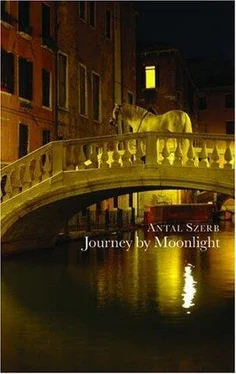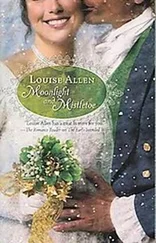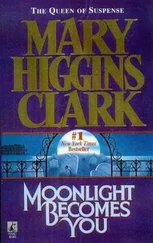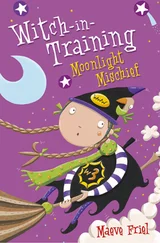“They were together night and day. By night, I tell you, because they shared a room. For me, this was the strangest thing. In our house, from the time Edit was twelve she was kept away from us boys, and thereafter a separate female ambience grew up around her. Girlfriends called on her, boyfriends too, people we didn’t know and whose pastimes we thoroughly scorned. My adolescent fantasy was thoroughly exercised by the fact that Éva and Tamás lived together. Because of it, the gender difference became somehow blurred, and each took on a rather androgynous character in my eyes. With Tamás I usually spoke in the gentle and refined way I always did with girls, but with Éva I never experienced the bored restlessness I felt with Éva’s girlfriends — with those officially proclaimed females.
“The grandfather I did have difficulty getting used to. He would shuffle into their room at the most unlikely hours, often in the middle of the night, and wearing the most outlandish clothes, cloaks and hats. They always accorded him a ceremonial ovation. At first I was bored by the old fellow’s stories, and couldn’t follow him very well since he spoke Old German with a trace of Rhineland accent, because he had come to Hungary from Cologne. But later on I acquired a taste for them. The old chap was a walking encyclopaedia of old Budapest. For me, with my passion for houses, he was a real godsend. He could tell the story of every house on the Hill, and its owners. So the Castle District houses, which up till then I had known only by sight, gradually became personal and intimate friends.
“But I, too, hated their father. I don’t recall ever once speaking with him. Whenever he saw me he would just mutter something and turn away. The two of them went through agonies when they had to dine with him. They ate in an enormous room. During the meal they spoke not a word to each other. Afterwards, Tamás and Éva would sit while their father walked up and down the enormous room, which was lit only by a standard lamp. When he reached the far end of the room his form would disappear into the gloom. If they spoke to one another he came up and aggressively demanded, ‘What’s that? What are you talking about?’ But luckily he was rarely at home. He got drunk alone in bars, on brandy, like a thoroughly bad sort.
“Just at the time we got to know each other, Tamás was working on a study of religious history. The study was to do with his childhood games. But he approached it with the method of a comparative religious historian. It was a really strange thesis, half parody of religious history, half deadly serious study of Tamás himself.
“Tamás was just as crazy about old things as I was. In his case it was hardly surprising. Partly it was inherited from his father, and partly it was because their house was like a museum. For Tamás what was old was natural, and what was modern was strange and foreign. He constantly yearned for Italy, where everything was old and right for him. And, well, here am I sitting here, and he never made it. My passion for antiquity is more of a passive enjoyment, an intellectual hankering. His was the active involvement of the whole imagination.
“He was forever acting out bits of history.
“You have to understand that life for these two in the Ulpius house was non-stop theatre, a perpetual commedia dell’arte . The slightest thing was enough to set them off on some dramatisation, or rather, they acted things out as they talked. The grandfather would tell some story about a local countess who had fallen in love with her coachman, and instantly Éva was the countess and Tamás the coachman. Or, he would tell how the state judge Majláth was murdered by his Wallachian footman, so Éva became the judge and Tamás the footman. Or they would develop some historical melodrama, much longer and more involved, as an ongoing serial. Naturally these plays sketched the events only in broad strokes, like the commedia dell’arte . With one or two items of clothing, usually from the grandfather’s inexhaustible and amazing wardrobe, they would suggest costume. Then would ensue some dialogue, not very long, but highly baroque and convoluted, followed by the murder or suicide. Because, as I think back now, these little improvisations always culminated in scenes of violent death. Day after day, Tamás and Éva strangled, poisoned, stabbed or boiled one another in oil.
“They could imagine no future for themselves, if they ever did think about one, outside the theatre. Tamás was preparing to be a playwright, Éva a great actress. But to call it ‘preparation’ is a bit inaccurate, because he never wrote any plays, and it never occurred to Éva in her dreamworld that she would have to go to drama school. But they were all the more passionate in their theatre-going. But only to the National: Tamás despised the popular stage in exactly the same way he despised modern architecture. He preferred the classical repertoire, with its wealth of murder and suicide.
“But going to the theatre requires cash, and their father, I am sure, never gave them pocket money. One small source of income was their cook, the slovenly old family housekeeper, who set aside a few pennies for the two youngsters from her housekeeping money. And the grandfather, who from a secret cornucopia donated a few crowns now and again. I think he must have earned them on the side. But of course none of this was enough to satisfy their passion for the theatre.
“It was Éva’s job to think about money. The word was not to be uttered in front of Tamás. Éva took charge. In such matters she was highly inventive. She could find a good price for anything they possessed which might sell. From time to time she would sell off some priceless museum-piece from the house, but this was very risky because of their father, and also Tamás took it badly if some familiar antique went missing. Sometimes she made really surprising loans — from the greengrocer, in the confectionery, in the pharmacy, even from the man collecting the electricity money. And if none of this worked, then she stole. She stole from the cook, she stole with death-defying courage from her father, taking advantage of his drunkenness. This was the surest and in some respects the least reprehensible source of income. But on one occasion she managed to lift ten crowns from the confectioner’s till. She was very proud of that. And no doubt there were other episodes she didn’t mention. She even stole from me. Then, when I found out, and bitterly remonstrated with her, instead of stealing she imposed a regular levy on me. I had to pay a certain sum into the family kitty every week. Tamás was of course never allowed to know of this.”
Erzsi butted in: “Moral insanity.”
“Yes, of course,” continued Mihály. “It’s very comforting to use expressions like that. And to a certain extent it absolves one. ‘Not a thief, but mentally ill’. But Éva was not mentally ill, and not a thief. Only, she lacked moral awareness when it came to money. The pair of them were so cut off from the real world, from the economic and social order, they simply had no idea what were the permitted and what the forbidden ways to raise money. Money for them did not exist. All they knew was the certainty that without those pretty bits of paper and bronze crowns they couldn’t go to the theatre. Money has its own great abstract mythology, the basis of modern man’s religious and moral sensibility. The religious rites of the money-god, honest toil, thrift, profitability and suchlike, were quite unknown to them. Ideas like these everyone is born with but they weren’t; or we learn them at home, as I did. But all they ever learnt at home was what their grandfather taught them about the history of the neighbourhood houses.
“You can’t begin to imagine how out of touch they were, how they shrank from every practical reality. They never held a newspaper in their hands, they had no idea what was happening in the world. There was a world war going on at the time — it didn’t interest them. At school it became obvious once during questions that Tamás had never heard of István Tisza. When Przemysl fell, he thought it was something to do with a Russian general, and politely expressed his pleasure. They nearly thrashed him. Later, when the more intelligent boys discovered Ady and Babits, he thought they were talking about generals, and he actually believed for ages that Ady was a general. The clever boys thought Tamás was stupid, as did his teachers. His real genius, his knowledge of history, went totally unnoticed in the school, which he for his part didn’t mind in the least.
Читать дальше












